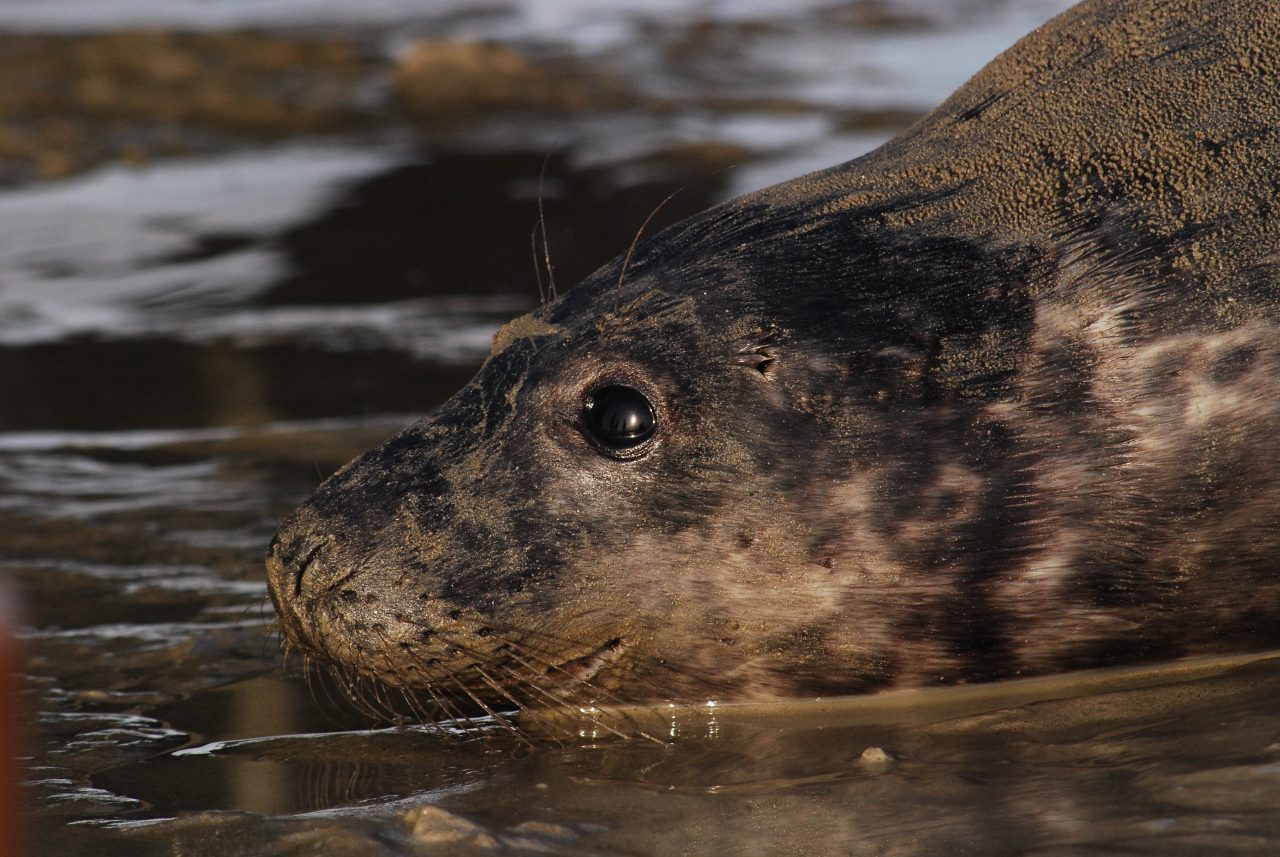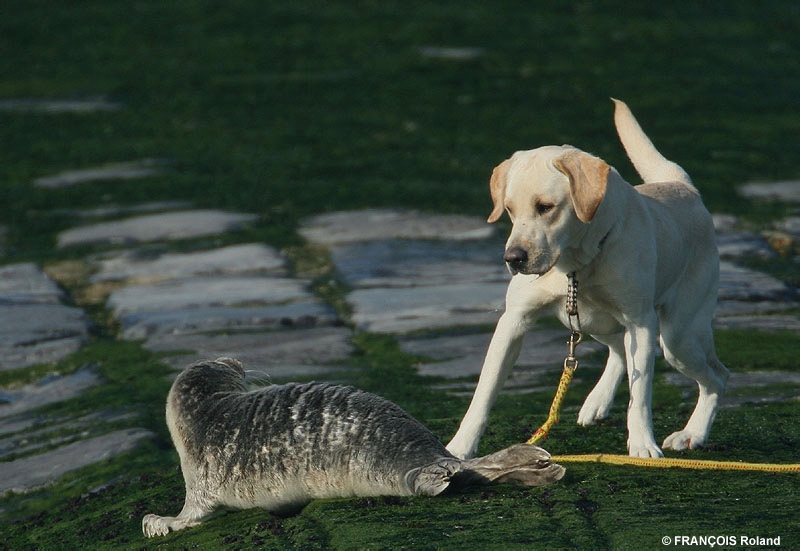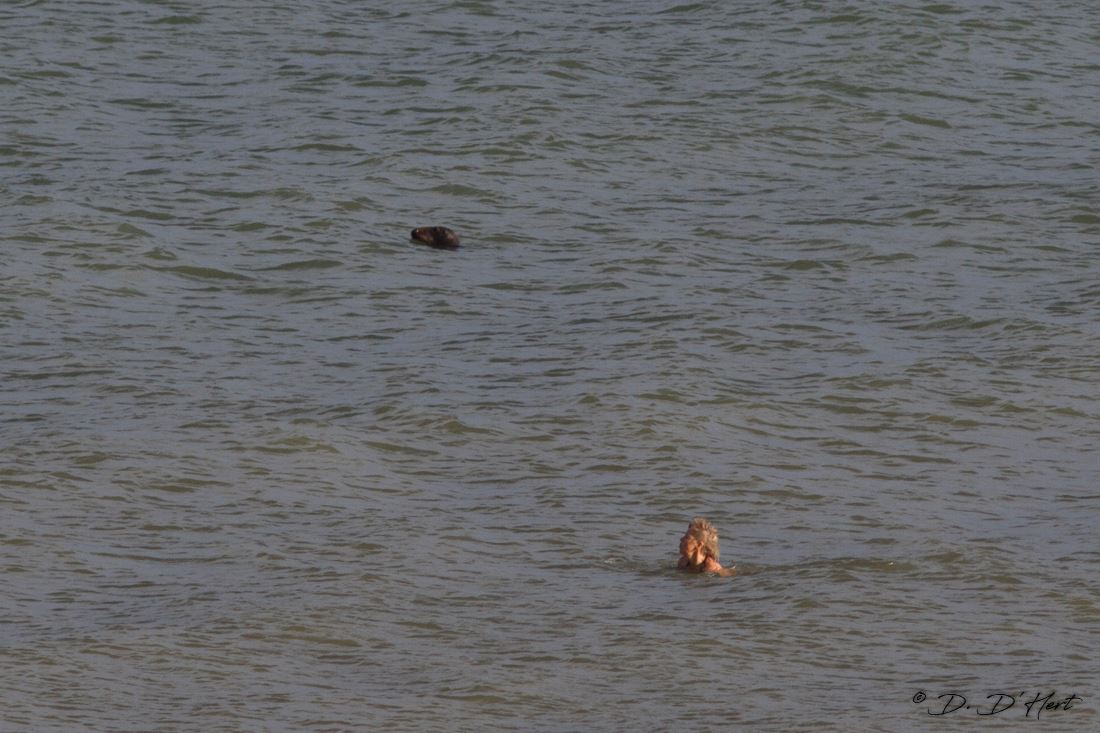Over the past weeks, horrendous messages appeared in the press about grey seals that ‘shall’ attack swimmers along our coastline. Some nuancing is required.

Those that followed the media over the last two weeks must have noticed it : newspapers, websites and news programs on TV and radio warned for grey seals, which were portrayed as murderous creatures that make our beaches and coastal waters unsafe and will soon start violating tourists.
It all started with an article in La Dernière Heure (DH) « Il va y avoir des attaques de phoques en Belgique » (« There will be attacks of grey seals in Belgium »; Wednesday 9 August), based on an interview with our science communicator Kelle Moreau. Also the front page of the paper unequivocally and alarmistically advertised: « Alerte aux phoques tueurs à la côte belge » (« Warning for killing seals along the Belgian coast »). Het Laatste Nieuws (HLN) copied the message (« Seals will attack swimmers at the coast »), be it in a drastically reduced form in which particularly the sensation remained. Subsequently, the unfortunate message was spread widely, both by the French and the Dutch-speaking press.

We want to nuance a number of things :
The intention of the article in La Dernière Heure was to inform about the strandings of marine mammals and rare fishes on the Flemish beaches in 2016. Predation by grey seals was mentioned as one of the causes of death of stranded harbour porpoises, in the context of which the journalist asked whether it can be excluded that a grey seal would ever attack a human being. Our science communicator responded that such an event cannot be excluded, but that such cases would rather qualify as accidents rather than manifestations of aggression or attempted predation. Grey seals are big and strong animals, with substantial teeth and claws, that could easily wound a human being as a consequence of « disturbance » (of a resting animal on a beach, a mother with cub, …), « confusion » (a foraging animal in turbid water may mistake a human being for something else?) or even of playful behaviour. However, our biologists believe that the chance of such an interaction with a grey seal in our waters remains very small (but exists), and that panic is unnecessary. We must definitely not avoid our coastal waters and beaches, and the grey seal is absolutely not an unwanted guest on our coast. The only message is that we should realise that grey seals are predators, that we should have a healthy respect for these animals, and best leave them alone.

The fact that grey seals have harbour porpoises on their menu was also shown for the first time by researchers of our institute, after a few porpoises washed ashore in 2011 with wounds that – after analysis – appeared to have been inflicted by grey seals. Initially, this news caused great disbelief. Only after confirmation by analyses of foreign scientists, this new phenomenon was widely accepted.
